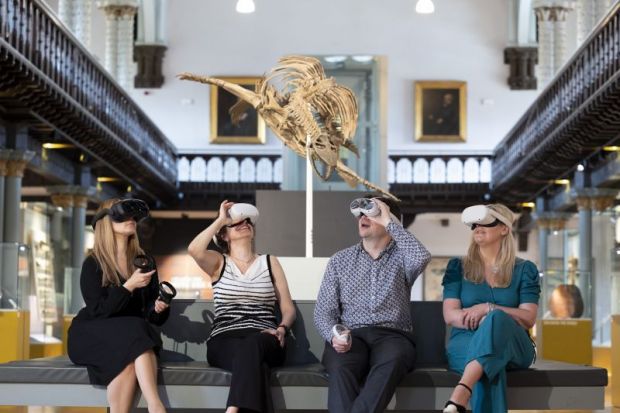The Westminster government should establish a creative technology innovation centre to improve collaboration between industry and academia, a report says.
The Coronation Challenge, a year-long research exercise carried out by the Royal Anniversary Trust and the Department for Digital, Culture, Media and Sport, examines how the UK can grow its creative technology industry (known as “createch”), and how empowering the sector could grow the economy.
The report says that the creative technologies face barriers which “limit [their] potential, including gaps in funding, lack of access to skills development and lack of opportunities for interdisciplinary collaboration”.
But it argues that a new “createch catapult” – an independent technology and innovation centre that connects businesses with research and academic communities – could go some way in addressing this by forming a “collaborative hub, fostering connections among creative businesses, educational institutions, and technology developers”.
Such a hub could be funded through Innovate UK to the tune of £50 million to £70 million over five years, with an additional ambition to leverage at least £10 million from industry, it says.
It argues that this would enable “experimental” research and development, allow firms to access cutting-edge technology, and act as a resource for smaller businesses unable to invest in costly innovation independently.
“To be successful a catapult would need to build on these existing strengths by providing an unprecedented national scale capability responsive to – and focused on – emerging technologies and their application in creative jobs, skills and innovation,” it outlines.
Creative technologies are defined in the report as those which “combine creative practice with technical know-how”, ranging from games companies to fashion businesses.
Universities could work to better foster skills in this area, including through closing collaboration with further education colleges, the report says.
It further argues that the Lifelong Learning Entitlement (LLE) – which will offer £37,000 worth of loan funding across a person’s life and is due to be introduced in January 2027 following successive delays – will be “crucial” for individuals looking to retrain or upskill to work in the UK creative industries, “and provide the necessary skilled workforce for these sectors”.
“We want our creative industries to be at the forefront of technological development so that the UK remains a global leader and one of the best places in the world to invest and do business,” said Chris Bryant, the minister for creative industries, arts and tourism.
“I look forward to working across government and with industry to address the report’s recommendations, so that we can drive economic growth in the sector, support good jobs, spread opportunity, and build a sustainable skills pipeline.”
Register to continue
Why register?
- Registration is free and only takes a moment
- Once registered, you can read 3 articles a month
- Sign up for our newsletter
Subscribe
Or subscribe for unlimited access to:
- Unlimited access to news, views, insights & reviews
- Digital editions
- Digital access to THE’s university and college rankings analysis
Already registered or a current subscriber?








